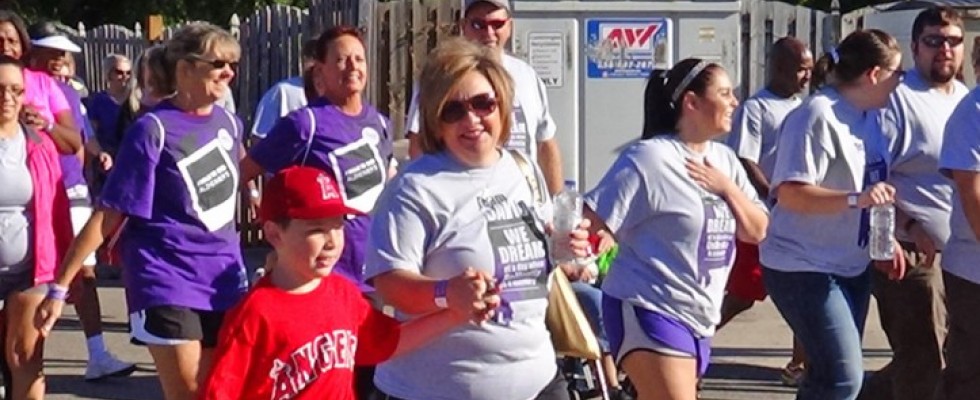
Huntsville, Alabama, known as The Rocket City, is home to NASA’s Marshall Space Flight Center and the United State’s Army’s Redstone Arsenal. The city draws engineers and physicists from all over the world to work in research and development careers. In contrast, Florence, Ala., is a relatively small town with a vibe from the famous Muscle Shoals music scene feeding into the population, but most people have lived their entire lives in the area. These are the two cities where Al Herbert of Homewatch CareGivers of Huntsville and Florence moved in 2012 and 2014, respectively.
 Al Herbert of Homewatch CareGivers of Huntsville and Florence
Al Herbert of Homewatch CareGivers of Huntsville and FlorenceHerbert says of the two cities, “In Huntsville, people ask, ‘Where are you from?’ In Florence, people ask, ‘Are you from here?’” Together, the two franchises of Homewatch CareGivers cover an area along the Alabama-Tennessee border of nearly 3,000 square miles. This territory covers many rural areas and people with a variety of health needs.
Paul Sauer founded the corporate Homewatch CareGivers in 1980 in Denver, Colorado. He originally offered house sitting and domestic services, personal care and homemaking support for the elderly, rehabilitative care, special care for the developmentally disabled, child care and transportation services. The first franchise opened in Boulder, Colo., in 1994.
Sauer’s daughter, Leann Reynolds, purchased her own franchise in Portland, Oregon, in 2003, then sold it and took over as president for Homewatch International (corporate) in 2006. Today, the company serves clients in 33 states and seven countries, with approximately 5,500 employees across the franchise network.
Al Herbert joined Homewatch CareGivers after retiring from the University of Alabama at Birmingham. His parents went through a period of poor health, and Herbert still worked and lived 1,000 miles away from home. He turned to homecare for his family. The move into homecare came naturally after this period, as Herbert wanted to help families in similar situations be able to find care. “Growing up, everyone lived within walking distance, but today, we don’t. Having someone you trust in the home is very important,” he says.
Homewatch CareGivers of Huntsville and Florence provides nonmedical homecare. This includes housekeeping and laundry, meal preparation, medication reminders, assistance with errands, transfer assistance and fall risk assessments, caregiver matching and more. Herbert points out that caregivers spend as much time at the client’s home as needed, as if a family member were caring for them. The homecare that Homewatch CareGivers provides is client-focused, rather than caregiver focused. Herbert says, “We don’t provide the things we think are important, rather, we try to provide what the client believes is important (within reason) to live their lives with dignity.” Herbert points to recent AARP studies reporting that 90 percent or more of seniors want to spend their last years at home, a shift from previous surveys.
The goal of homecare, Herbert says, is to help someone stay in the least restrictive environment for whatever health conditions he or she may have. Ensuring the client has an individualized care plan that satisfies their needs and their family’s worries is also essential.
Caregivers University is offered to each caregiver working at Homewatch CareGivers. The online training courses are accredited and caregivers can earn continuing education units (CEUs) to keep their certifications up to date. Each caregiver is required to take a minimum of 12 hours of continuing education each year. The courses allow caregivers to work with more challenging clients—dementia, Alzheimer’s and Parkinson’s patients. Caregivers are also able to increase their hourly rate through training, which is offered tuition free for employees. The time spent in training is also reimbursed quarterly. Caregivers University is a selling point for those looking for jobs in the homecare world, and as a retired college professor, Herbert says, “When people know better, they do better.”
In any homecare situation, matching the caregiver to the client’s needs is vital to the working relationship. Either Herbert or his wife, Pat, will meet personally with a new client to evaluate needs and ensure the company can meet those needs. If that is not possible, they refer the client to another local agency. They also perform a home safety inspection. “I believe it’s valuable to let the family know what the living conditions are,” Herbert says.
After learning the client’s needs, Homewatch CareGivers develops a care plan, then brings two or three caregivers to the home to spend time with the family and client. This allows the family to form a connection and choose. A primary and backup caregiver are assigned to the client.
When it comes to trends and developments in home health, Herbert notes that the need for homecare services has been vastly underestimated.
“One of our biggest issues is controlling the number of clients we take in across our two franchises. We have to make sure that each service demand is met,” Herbert says, and adds that new cultural trends are making it harder for people to care for their loved ones—whether it is family members living and working across the country, or simply working longer. “Sixty-five is no longer the end of the productive years, so we have more people to care for as younger seniors with older senior parents look for care.”
Another troubling trend is the rise in cognitive impairments and diseases, and Homewatch CareGivers and other agencies are adjusting their methods of care for aging adults with these difficulties.
Going from a college professor to a successful homecare franchise owner is a daunting challenge not many would have taken on. Al Herbert took on an especially unique challenge to serve the engineers, rocket scientists and rural communities of northern Alabama when he opened Homewatch CareGivers of Huntsville and Florence. To serve fully, Herbert considers not only his clients’, but also his caregivers’ needs as he works to provide the best care possible.
